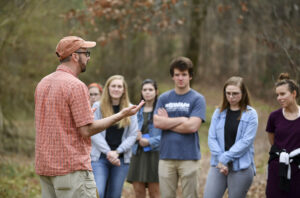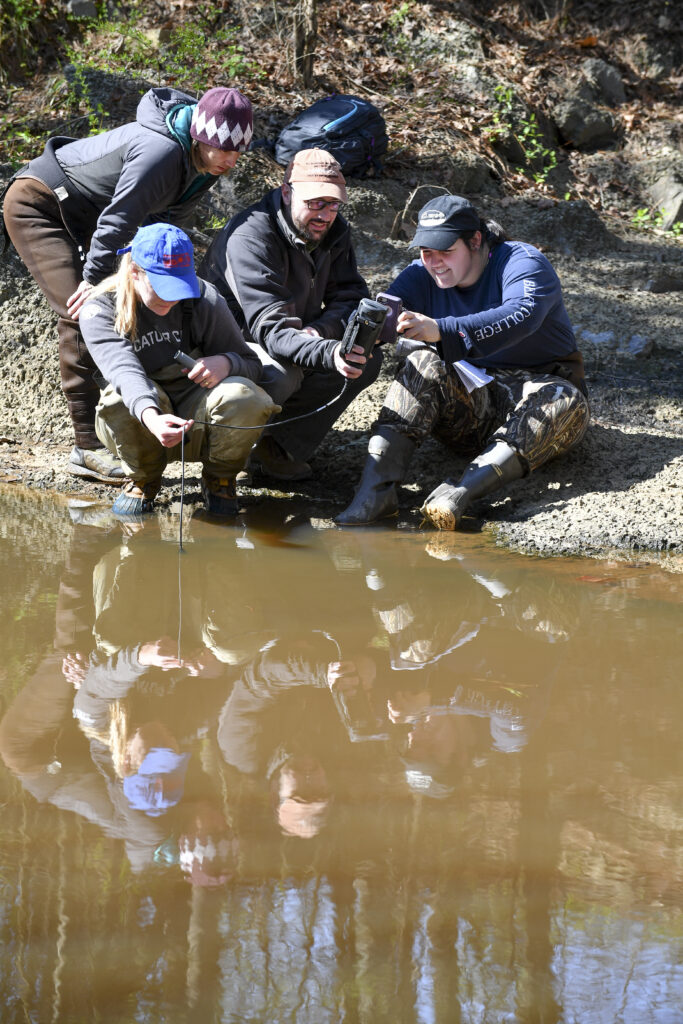
I believe that good teaching has the power to enlighten, motivate, empower, and transform. As a student, I was fortunate enough to have teachers who gave me a sense of wonder for the natural world, the skills to study it critically, and the chance to know the thrill of discovery. My passion for teaching stems from this experience and it is my goal as a teacher to inspire the same transformation in my students. To that end, I use a variety of active learning pedagogies and make it a point to integrate field experiences into my classes.
At Berry, I teach the following courses:
ESS 104: Introduction to Environmental Science
Introduction to basic physical and ecological concepts and principles that are pivotal to the sustainable management of our earth’s ecosystems. Lab experimentation with and observation of the environment.
ESS 320: Geographic Information Systems
Introduction to the theory and application of Geographic Information Systems (GIS) including the nature of spatial data, cartography, GIS data models, spatial analysis, basic spatial modeling, and global positioning systems. The laboratory component will provide experience using GIS software.
ESS 405: Environmental Science and Studies Capstone
Capstone experience in environmental science that investigates key questions in the field through readings and discussions. Students also gain real-world experience working on interdisciplinary projects that address environmental challenges at the local level.
ESS 310: Biogeography
This course investigates past, present, and future plant and animal distributions and the processes that led to these patterns. Human impacts on biotic distributions and applications of biogeographic knowledge and theory to conservation problems will also be discussed. In addition to lectures, the class will read and discuss articles from the scientific literature and other sources.
ESS 312: Global Change in the Anthropocene
Humans are now the dominant species on Earth and causing rapid changes to the biological, climatological, and geological systems on which humans depend. These alterations have led to the identification of a new period in Earth’s history: The Anthropocene. This course will investigate the causes of these global changes and examine impacts of the Anthropocene on society’s future.
I have also taught the following courses at Berry College (BC), Willamette University (WU) and the University of Tennessee (UT):

EVS 480: Weather and Climate
GEOG 131 and 132: Introduction to Physical Geography I and II (UT)
ENVR 105: Introduction to Environmental Science (WU)
ERTH 112: Physical Geography (WU)
ERTH 361: Quaternary Paleoenvironments (WU)
ENVR 333: Global Climate Change (WU)
ERTH 333: Geographic Information Systems (WU)
ENVR 495/496: Environmental Science Senior Thesis (WU)
While a PhD student, I also spent two years as a NSF GK–12 Graduate Fellow where I worked in middle school science classrooms to integrate inquiry-based learning activities into their curriculum.
For more about my teaching experience, please see my CV.